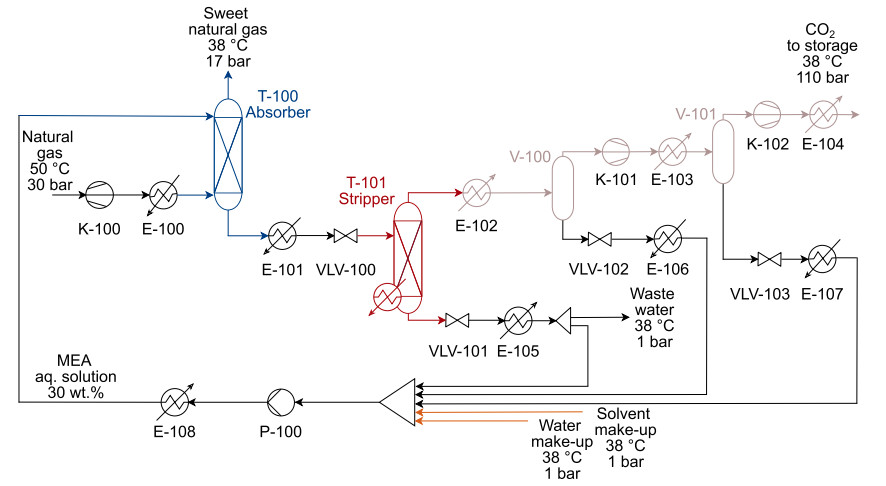Bayesian symbolic learning to build analytical correlations from rigorous process simulations: Application to CO2 capture technologies
Times cited: 16
Negri, V, Vázquez, D, Sales-Pardo, M, Guimera, R, Guillén-Gosálbez, G.
ACS Omega
7 (45)
,
41147
-41164
(2022).
Process modeling has become a fundamental tool to guide experimental work. Unfortunately, process models based on first principles can be expensive to develop and evaluate, and hard to use, particularly when convergence issues arise. This work proves that Bayesian symbolic learning can be applied to derive simple closed-form expressions from rigorous process simulations, streamlining the process modeling task and making process models more accessible to experimental groups. Compared to conventional surrogate models, our approach provides analytical expressions that are easier to communicate and manipulate algebraically to get insights into the process. We apply this method to synthetic data obtained from two basic CO2 capture processes simulated in Aspen HYSYS, identifying accurate simplified interpretable equations for key variables dictating the process economic and environmental performance. We then use these expressions to analyze the process variables’ elasticities and benchmark an emerging CO2 capture process against the business as usual technology.
